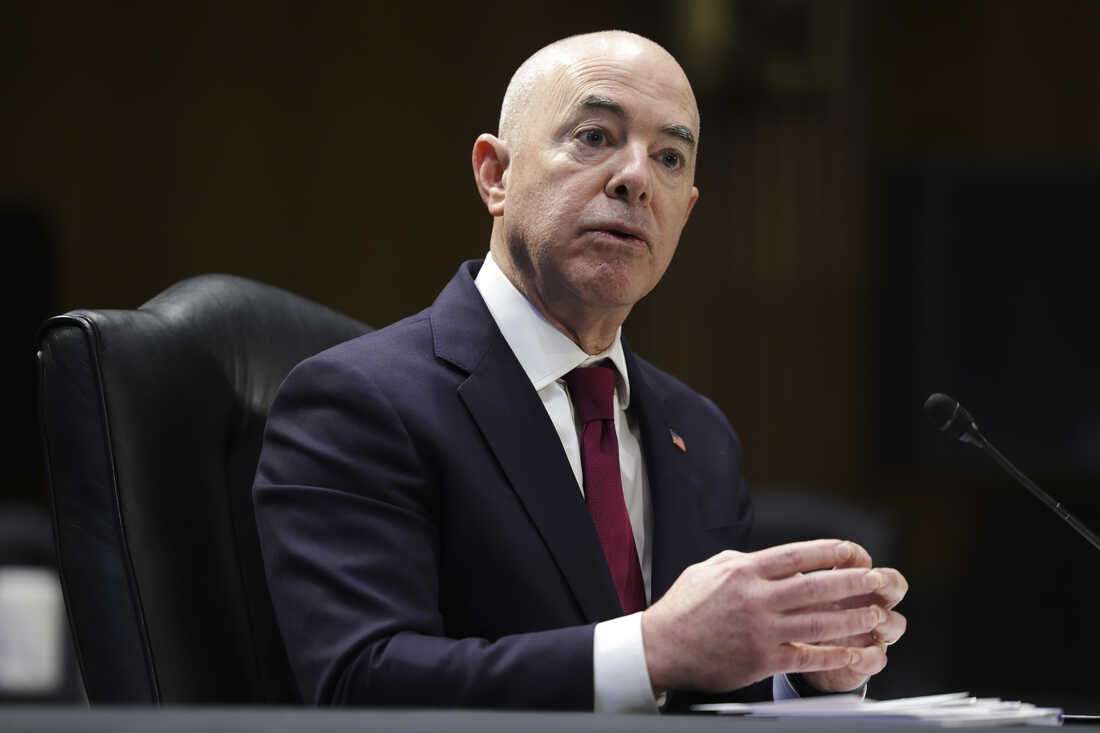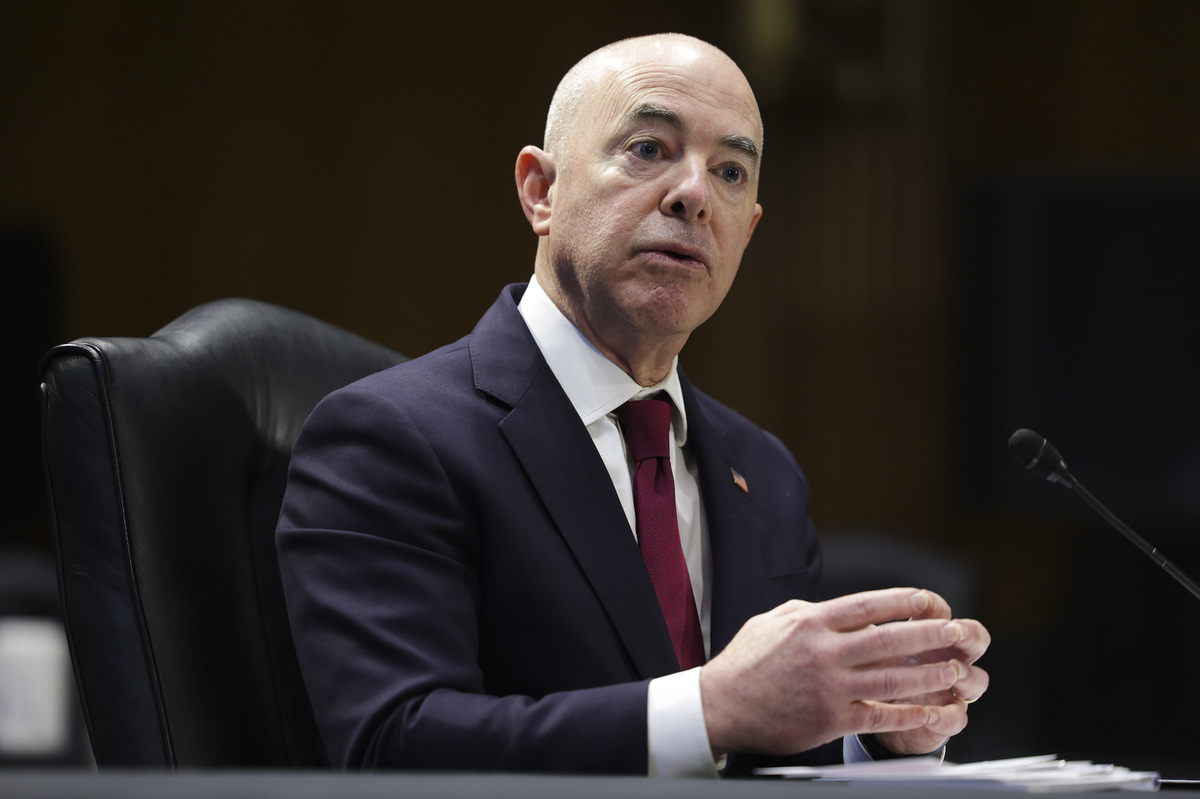

U.S. Secretary of Homeland Security Alejandro Mayorkas testifies prior to a Senate subcommittee on homeland stability on Capitol Hill on May perhaps 4.
Kevin Dietsch/Getty Photos
cover caption
toggle caption
Kevin Dietsch/Getty Photos

U.S. Secretary of Homeland Protection Alejandro Mayorkas testifies prior to a Senate subcommittee on homeland stability on Capitol Hill on May possibly 4.
Kevin Dietsch/Getty Illustrations or photos
The U.S. Supreme Courtroom will listen to arguments Tuesday in a prolonged-managing dispute over how to implement the nation’s immigration legal guidelines.
President Biden’s administration wants to established guidelines for whom immigration authorities can focus on for arrest and deportation. But a team of Republican lawyers typical sued to block the recommendations, arguing that they were preventing immigration authorities from performing their positions.
The consequence of the case could have key implications — and not just for immigration enforcement. Former Department of Homeland Protection officials and immigrant advocates say the case could hinge on the dilemma of how considerably discretion regulation enforcement companies have to choose how and when to enforce the regulation.

“A cop would not pull about every single speeder on the highway,” states Jeremy McKinney, the president of American Immigration Attorneys Affiliation. “So you have to make alternatives. All that the Biden administration was making an attempt to do was make choices, just like each individual administration ahead of it.”
It’s broadly agreed that Immigration and Customs Enforcement does not have the methods to arrest or deport all of the about 11 million people in the nation without the need of authorization. So immigration authorities have to established enforcement priorities — priorities that have swung sharply from one administration to the future.
‘Prosecutorial discretion’
In the course of former President Trump’s administration, ICE agents and officers ended up empowered to arrest and deport everyone who was living in the U.S. without having legal authorization.
“If you’re in this nation illegally and you fully commited a crime by getting into this nation, you really should be awkward,” acting ICE director Thomas Homan explained to a congressional subcommittee in 2017. “You ought to glimpse in excess of your shoulder, and you require to be anxious.”

Thomas Homan, then-acting director of U.S. Immigration and Customs Enforcement, testifies right before the Residence Homeland Protection Committee’s Border and Marine Stability subcommittee on Capitol Hill on Might 22, 2018, in Washington, D.C.
Aaron P. Bernstein/Getty Visuals
conceal caption
toggle caption
Aaron P. Bernstein/Getty Images

Thomas Homan, then-acting director of U.S. Immigration and Customs Enforcement, testifies in advance of the Household Homeland Safety Committee’s Border and Marine Safety subcommittee on Capitol Hill on Could 22, 2018, in Washington, D.C.
Aaron P. Bernstein/Getty Pictures
When the Biden administration took place of work, it place on the brakes. Instead of arresting and deporting any one they encountered who was in the region without the need of authorization, immigration authorities ended up provided a pretty unique established of priorities.
Homeland Protection Secretary Alejandro Mayorkas explained the new guidance as an training of prosecutorial discretion.
“We have guided our workforce to exercising its discretion to focus on people who pose a menace to nationwide stability, community protection and border protection,” Mayorkas told NPR in an job interview last year.
There had been formal immigration enforcement priorities at the Division of Homeland Safety prior to. In the course of previous President Obama’s administration, ICE officers and brokers were also encouraged to use prosecutorial discretion, and aim on threats to public security.
But the announcement of the Biden administration’s enforcement priorities prompted several lawsuits from immigration hardliners, who argue that this plan goes significantly further than what any past administration had accomplished.
“They went way still left on this. So it can be virtually like the Immigration and Nationality Act isn’t going to exist anymore,” mentioned Homan, the former head of ICE, during an interview last year.
Texas and Louisiana win in federal courtroom
Portion of what outraged Homan and other hardliners about the new priorities was that beneath the Biden administration’s steering, simply currently being existing in the U.S. without legal authorization “should not on your own be the foundation” for immigration authorities to arrest or deport another person.
“Expressing that somebody cannot be taken out just for the reason that they are an illegal alien is a drastic improve in our immigration law,” claims Christopher Hajec at the Immigration Reform Regulation Institute in Washington, which submitted a pal of the court brief before the Supreme Court. “It can be not within an agency’s electrical power to do that. Only Congress could do that.”

That is an argument that the states of Texas and Louisiana manufactured in court docket. A federal decide in Texas agreed, and threw out the administration’s enforcement priorities in June.
But previous DHS officials of equally parties fear about the implications of that ruling.
“Not every person can be arrested or place in proceedings,” mentioned Julie Myers Wooden, the head of ICE during the George W. Bush administration, and just one of many former DHS officials who submitted a temporary expressing their considerations to the Supreme Court.
Wooden, a former federal prosecutor, states each individual regulation enforcement agency routines discretion about how to deploy its means — and that people choices are also significant to depart up to unique subject offices.
“What you don’t want to see is a problem where a unique office environment is focusing on all noncriminal arrests basically mainly because they are easier or extra practical to the detriment of folks that have major criminal histories,” she explained in an interview.
Wooden suggests she might not have decided on the exact priorities as Secretary Mayorkas, but it is his contact to make.
If the reduced court’s ruling is upheld, immigrant advocates fear it could sign a return to the much more expansive priorities of the Trump administration.
“There was a good deal of dread in the local community at that time,” says Sarah Owings, an immigration attorney in Atlanta. “And I did see some really dreadful items.”
Owings suggests she experienced a range of clientele who had been next the direction and examining in with ICE for yrs who suddenly uncovered themselves in detention. She remembers a single person in specific whose spouse was pregnant at the time of his verify-in with ICE.
“He experienced a wife who was a superior-possibility being pregnant and a couple of months away from providing, and they ended up like, very well, he employed a phony name one time 10 decades back, so we are having you in right now,” Owings recalls. “I truly hope that we really don’t get again to that period.”







